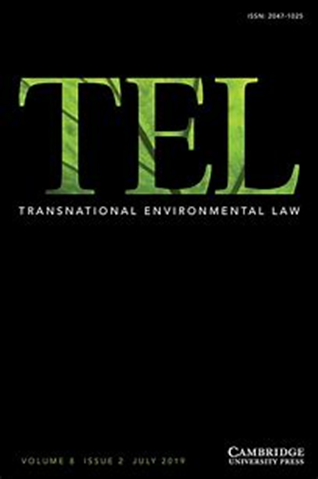Written by: David J Devlaeminck
Edited by: LIU Chun & HUANG Hui
David J DEVLAEMINCK (Lecturer) published an article entitled Softness in the Law of International Watercourses: The (E)merging Normativities of China’s Lancang-Mekong Cooperation in Transnational Environmental Law.

Abstract: The law of international watercourses consists mainly of a series of bilateral, multilateral, regional, and global agreements that establish binding rules through which state parties jointly manage transboundary water resources. China similarly manages its shared freshwaters through a series of bilateral agreements. Increasingly, however, it relies on non binding soft law instruments to manage these resources with its riparian neighbours. An important example of this is the Lancang-Mekong Cooperation, a branch of the Belt and Road Initiative. Its use of soft instruments, which recognize international law and promote projects displays evidence of merging and emerging normativities, ensuring that it is capable of playing both a supporting and a developmental role in the law of international watercourses.
Devlaeminck, D.J. (2022). Softness in the Law of International Watercourses: The (E)merging Normativities of China’s Lancang-Mekong Cooperation, Transnational Environmental Law 11(2), 357-380